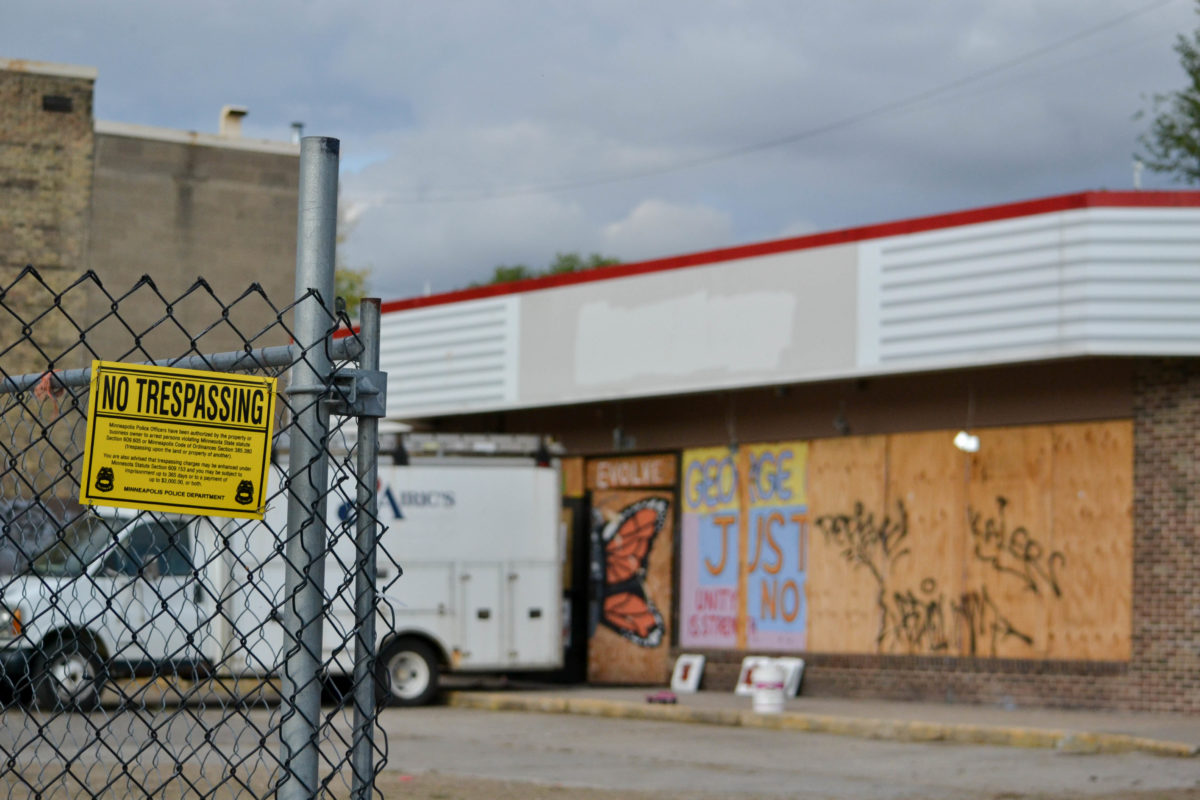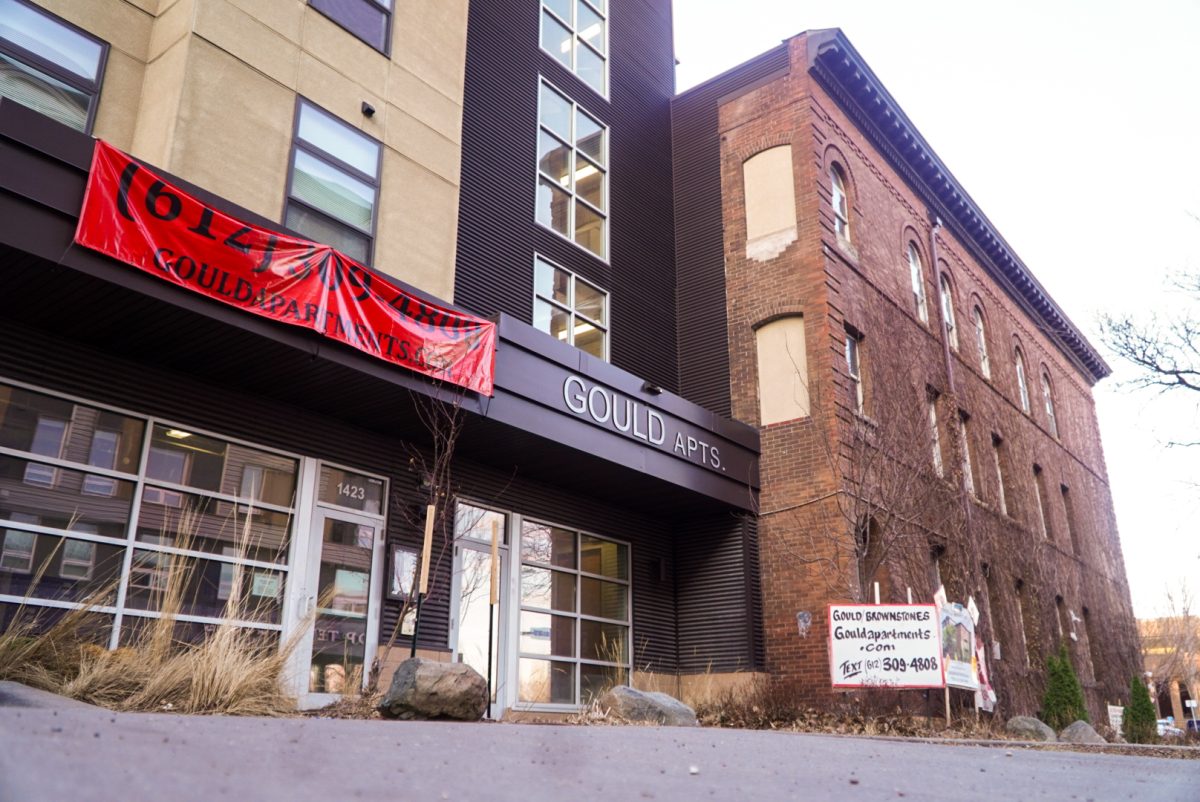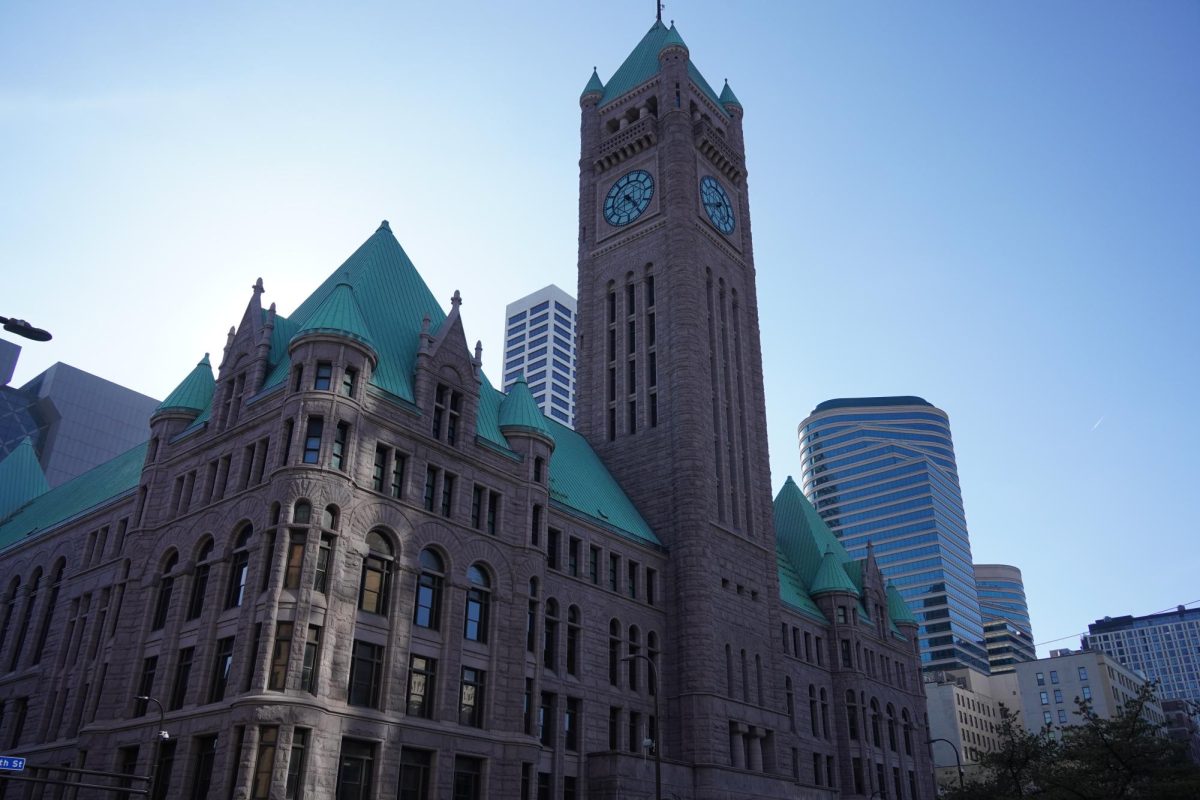Minneapolis City Council members want to designate some parking lots and outdoor spaces as places homeless people can stay without fear of eviction.
Council members Jason Chavez (Ward 9), Aurin Chowdhury (Ward 12) and Aisha Chughtai (Ward 10) will introduce the Safe Outdoor Spaces and Safe Parking Spaces ordinances as three separate ordinances all with the intended goal of providing a place where homeless people can stay overnight.
Safe outdoor spaces could include temporary and mobile shelters like outdoor tents and trailers and parking lots where homeless residents can legally park their vehicles overnight, according to a July 23 presentation from the city auditor’s office.
Minneapolis declared unsheltered homelessness a public health emergency in December 2023, according to Chavez’s Nov. 1 newsletter. Less than two months later, the city evicted several homeless encampments part of Camp Nenookaasi earlier this year, including three encampments in February and three in July, for concerns about violence and the spread of illnesses.
Sanctuary Supply Depot, an organization that provides basic living supplies to homeless residents, reported three encampment evictions in south Minneapolis on Tuesday in an Instagram post.
Christin Crabtree, an organizer for Camp Nenookaasi, said the evictions made it harder for homeless residents to connect with support services because they lost the centered, physical space of the encampment. She added that the Camp Nenookaasi organization, which supports homeless residents, adapted the way they do outreach to account for the fractured nature of the homeless community.
“That is not a sign of the individual’s failing as much as it’s a sign of, I would say, strategic disinvestment in certain spaces,” Crabtree said. “There’s been roadblocks for us, and we’ve been able to move around them because nothing is going to stop us from caring about our neighbors and caring about each other.”
Chavez said in a statement to the Minnesota Daily that he is committed to exploring all policies and actions that address unsheltered homelessness. However, he said the Minneapolis Mayor’s office’s encampment removal strategies are inhumane and ineffective.
Crabtree said these ordinances are steps in the right direction for supporting homeless Minneapolitans because they would provide some stability in their daily lives. But it is not the solution.
“Having a place to be and knowing that you’re allowed to be there just allows a person to be able to sleep at night,” Crabtree said. “Some of these guys they can’t, like you can’t go all the way to sleep if you’re constantly worried about what’s happening around you, right?”
In the future, Crabtree said she wants to see Minneapolis create affordable housing priced for residents earning 30% or less of Minneapolis’ area median income to accommodate the financial situations of all homeless residents.
Hennepin County’s housing stability director David Hewitt said in a statement to the Minnesota Daily that the county is committed to increasing housing opportunities with minimal entry requirements such as verifiable income and background checks.
Chavez said he is confident his city council colleagues will support the ordinances.
“Homelessness is a complex problem with even more complex solutions, so the city alone cannot adequately address this crisis,” Chavez said in the statement. “My colleagues and I will continue working with our partners at the federal, state, and county levels to obtain the funding and expertise needed to help our unhoused neighbors.”
Crabtree said moving forward she wants Minneapolis to think about its homeless residents as members of the community and consider the dangers they face instead of framing them as safety threats themselves.
“It is a unique, special kind of racism to blame our unhoused residents who are primarily Black, Indigenous, immigrant populations, it’s a special kind of racism to blame them and want to talk about safety and housing and frame things in a way that villainizes, rather than brings forward meaningful services and solutions,” Crabtree said.















Matt Taylor
Dec 11, 2024 at 1:38 pm
When are the city council members going to realize that these encampements are NOT ok and they all need to be removed NOW and not allowed to pop up anywhere else. I see another innocent family’s house was burnt down, caused by the encampement next door. All you idiots that say I hope they put more up or hope it comes to St Paul etc.. maybe you should just move them into your house!!!!
Anonymous
Nov 20, 2024 at 12:08 pm
Awesome article. Hope something similar comes to St. Paul. I feel so much sympathy for the unhoused population during winter especially, as the risk of cold-related health issues becomes so much more dire. I am glad that Minneapolis has implemented the warming bus stops at least, but that is obviously not a good solution. I hope these efforts are successful!
Jonathan Solberg
Nov 20, 2024 at 11:35 am
Crabtree claims that “racism” is driving the decision to dismantle these homeless encampments, without offering any evidence that this is the case. If one is going to cite racism as the impetus, as opposed to, say, “concerns about violence and the spread of illness”, cited earlier in the article, then one must provide evidence. To do otherwise is irresponsible and ill-fitting toward tangible solutions.